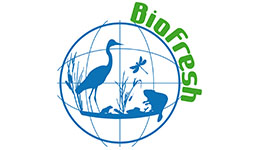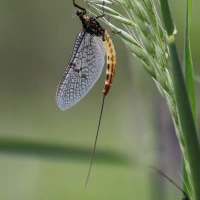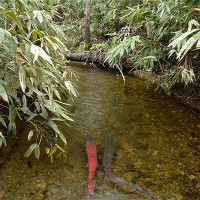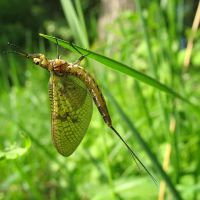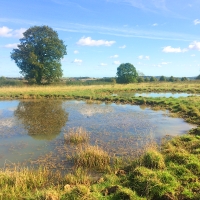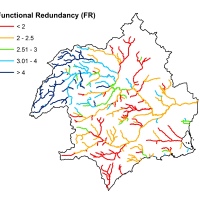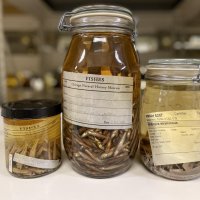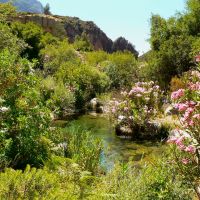New intergovernmental biodiveristy platform kicks off
It’s the biodiversity community’s answer to the IPCC. The newly formed Intergovernmental Science-Policy Platform on Biodiversity and Ecosystem Services, or IPBES, held their first meeting last month. In this blog post, we discuss the meeting, as well as the important role a body like the IPBES can play to help translate science into effective policy for conservation action.
The IPBES’s first plenary meeting, which was held in Bonn, Germany from the 21-26 of January, attracted more than 600 participants from the 105 member states as well as various stakeholders groups. This meeting was set up to lay the groundwork for how the platform will operate so that all future meetings can focus on scientific and technical work.
 One aim of the meeting was to formulate a way to represent the link between biodiversity and its benefits to human well-being, sustainability, and conservation to help develop an initial IPBES work programme. Another key aim of the meeting was to elect members to the IPBES Bureau, the administrative body of the IPBES, as well as an international group of renowned experts to the Multidisciplinary Expert Panel (MEP), which will ensure the scientific credibility and independence of the IPBES work.
One aim of the meeting was to formulate a way to represent the link between biodiversity and its benefits to human well-being, sustainability, and conservation to help develop an initial IPBES work programme. Another key aim of the meeting was to elect members to the IPBES Bureau, the administrative body of the IPBES, as well as an international group of renowned experts to the Multidisciplinary Expert Panel (MEP), which will ensure the scientific credibility and independence of the IPBES work.
The new top nature platform was established in April 2012 and was set up to assist governments and citizens to better understand the state, trends and challenges facing the natural world and humanity in the 21st century. It aims to be the ‘leading intergovernmental body for assessing the state of the planet’s biodiversity, its ecosystems and the essential services they provide to society’ by providing scientific support for policy-making. Hendrik Segers, member of BioFresh partner the Royal Belgian Institute of Natural Sciences in Brussels, followed the formation of the IPBES, which we covered with a series on our blog posts which can be accessed here (June 2010), here (July 2011) and here (Nov 2011).
The creation of the IPBES is especially exciting for BioFresh because we share the goal of providing access to data, information, and our scientific tools may be able to contribute to the IPBES assessments. Another reason to be excited is that the IPBES will work on another key BioFresh area of focus, the science-policy interface, helping to create dialogue between the scientific community, governments, and other stakeholders on biodiversity and ecosystem services.
 There are plenty of science-based organisations and institutes around the world warning of the severe effects that declining global biodiversity will have, as are there numerous policy-oriented organisations (e.g. CBD). But nothing exists in the middle. Until the IPBES, there was no other independent, international body tasked with integrating the science of biodiversity and ecosystem services with the development of policy. The IPBES is unique because it fills this gap and meets the requirements of governments around the world to have access to the scientific assessments of the status and implications of the current decline of biodiversity and ecosystem services.
There are plenty of science-based organisations and institutes around the world warning of the severe effects that declining global biodiversity will have, as are there numerous policy-oriented organisations (e.g. CBD). But nothing exists in the middle. Until the IPBES, there was no other independent, international body tasked with integrating the science of biodiversity and ecosystem services with the development of policy. The IPBES is unique because it fills this gap and meets the requirements of governments around the world to have access to the scientific assessments of the status and implications of the current decline of biodiversity and ecosystem services.
The IPBES will be an invaluable tool to help conserve the world’s declining biodiversity and the services they provide and will be key in helping countries to implement the Strategic Plan for Biodiversity 2011-2020 and achieve their Aichi Biodiversity Targets. In addition, it will contribute to the preparation of the next global assessment on biodiversity and ecosystem services, to be launched in 2018.
This newest biodiversity body offers plenty of promise, but must also ensure that it collaborates with existing initiatives to avoid duplication and to align its objectives as closely as possible with the Aichi targets and other biodiversity conventions. Indeed according to Braulio Ferreira de Souza Dias, Executive Secretary of the Convention on Biological Diversity (CBD), collaborating with current initiatives will help achieve shared goals. “By working closely together,” he says, “the IPBES and the conventions can support their common objectives of the conservation and sustainable use of biodiversity and maintenance of ecosystem services for human well-being.”



